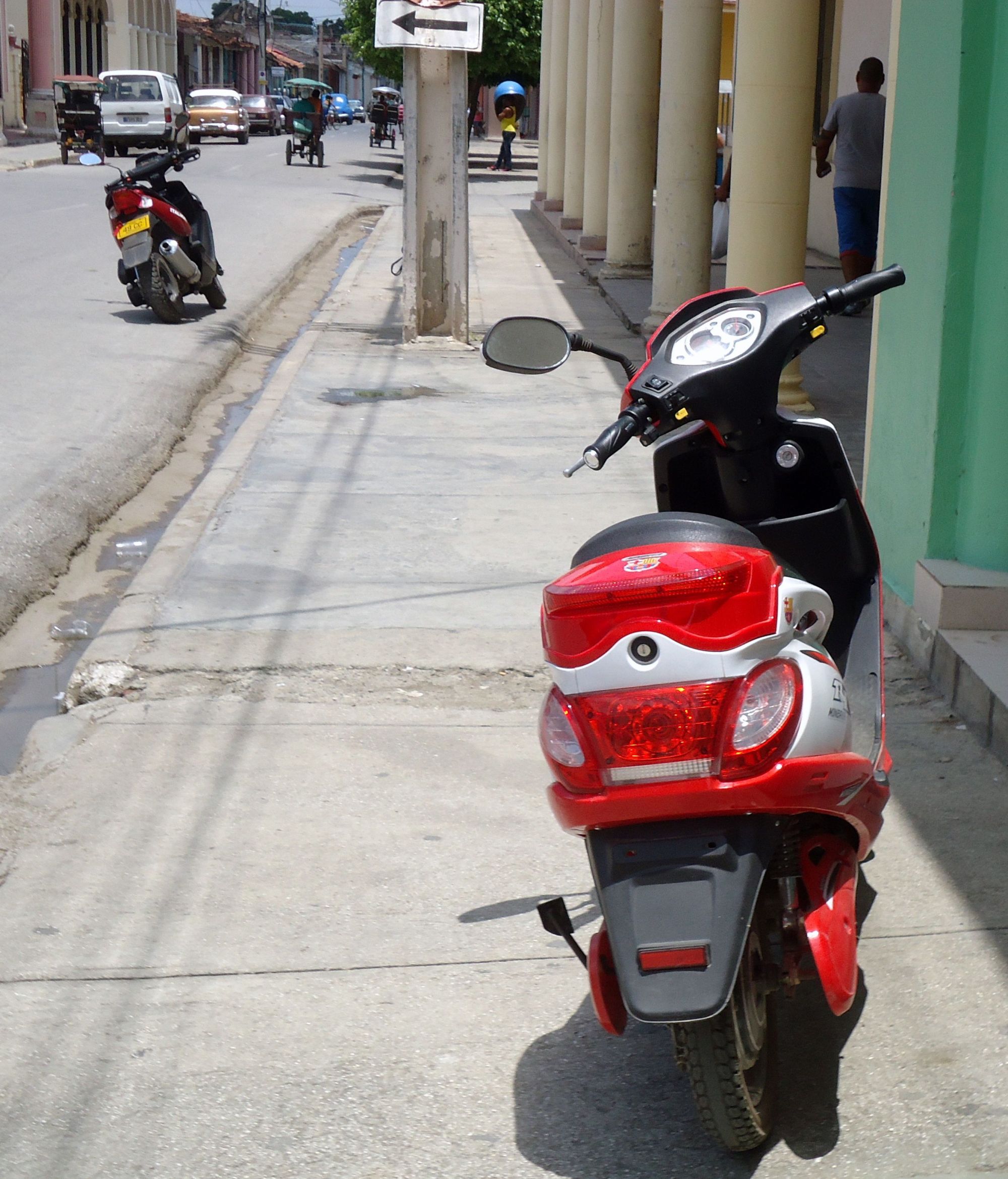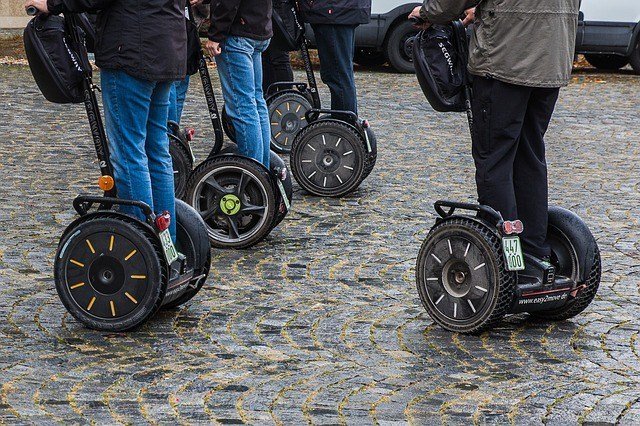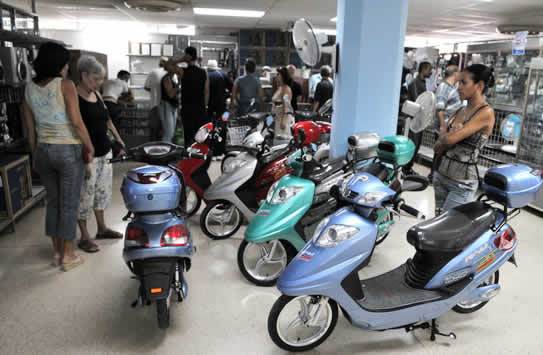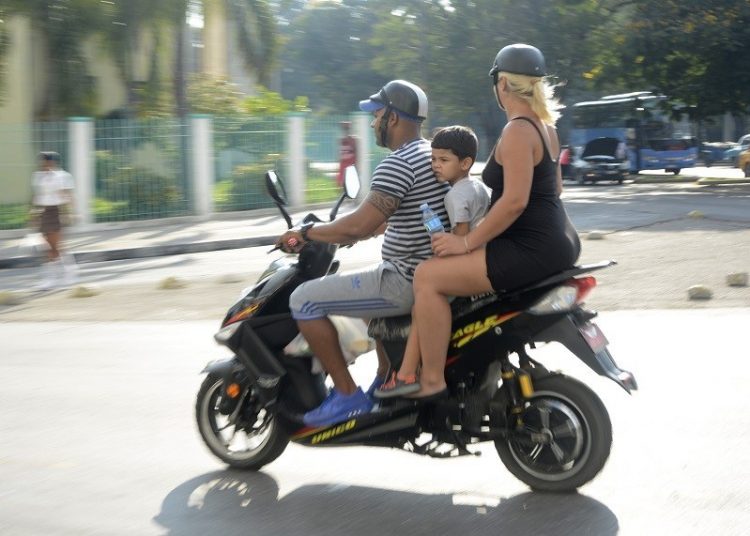The first stage of the general registration process of mopeds circulating in Cuba will begin on November 25 and will run until February 29, 2020. Vehicle owners must do so before the end of that period for the vehicles that entered the country in violation of import regulations of the General Customs of the Republic.
This process will be exceptional and only for this time, as persons who do not attend will lose the opportunity to be regularized and the right to circulate, as established in Resolution 35/2019 of the Ministry of Interior, published in the Regular Official Gazette of the Republic No. 79.
The requirements to be met include that the moped must be presented for the pre-inspection process in good technical condition and clean, in addition to maintaining in good condition the attachment for the placement of the license plate.

Those responsible for the vehicles must take stamps worth 45.00 pesos: 40.00 for the initial registration, which includes the license and the license plate, as well as 5.00 for the sticker. The documents to be submitted include the purchase invoice or purchase contract issued by the marketing entity, in the case of those who bought the vehicle in the country, while those who register imported mopeds must submit the registration application form, issued by the General Customs of the Republic.
Those who do not have the previous documentation or whose vehicle is in the name of another person, must present an affidavit. Mopeds acquired by any means from the calendar year after the start of the process, can only be registered by the person to whom the invoice or purchase contract was issued, or the initial registration application form, accordingly.
The means of transportation that must be registered will be those that have the appearance of a motorcycle or electric mopeds and those that have three and four wheels. Devices such as electric strollers, electric toy bicycles and the popular Segway will not need to be registered, although they must comply with article 117 of Law 109 of the Road Safety Code, and may not circulate on the road, only in recreation areas or roads closed for this purpose.

Other means such as electric wheelchairs, and mopeds built based on the assembly of parts and pieces, do not need to be registered. The second stage of this process will be from March 2 until April 30, 2020, for the legal entities possessing internal combustion mopeds, including the diplomatic sector.
For the third, which will be from May 4, 2020 until February 27, 2021, the owners of electric mopeds may register their vehicles, and in the last, from March 1 to May 31, 2021, it will be the turn for legal entities that own electric mopeds, including the diplomatic sector.
In the case of individuals, all legal owners over 18 years of age, with civil capacity to carry out the process, can identify themselves with their ID card and present the documentation that certifies the legal possession of the moped. In the event that said person cannot be present for the registration, because they are abroad, hospitalized or incapacitated, any other person over 18 years of age can present the power of attorney that accredits them to carry out the procedure and the same documents.


In Havana, centers with a high concentration of mopeds will be identified to provide the registration service. Both in the capital and in other provincial capitals an appointment reservation system will be established by telephone or in person. The call for the registration of mopeds will be carried out in each province by municipalities, with the possibility of an itinerant service for the most remote regions.
Once the processes corresponding to each stage of registration of mopeds in the municipalities have been completed, the circulation of unregistered vehicles with their respective license plates will be prohibited. According to official media data, until the first half of 2019 in Cuba there were more than 200,000 mopeds owned by individuals and legal entities, which include those assembled in the country, those imported with the enactment of Decree 320, and those existing before this legislation.










